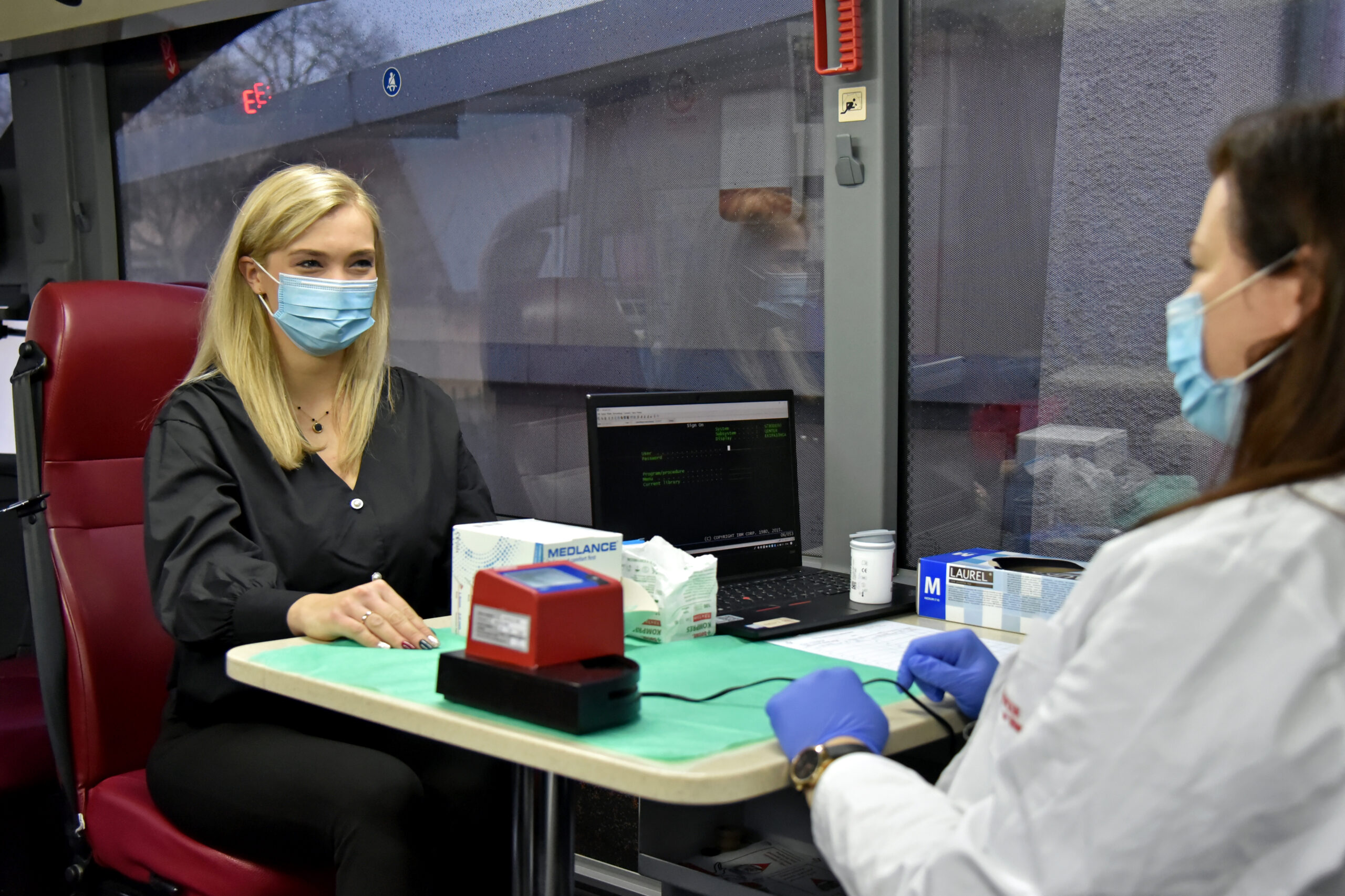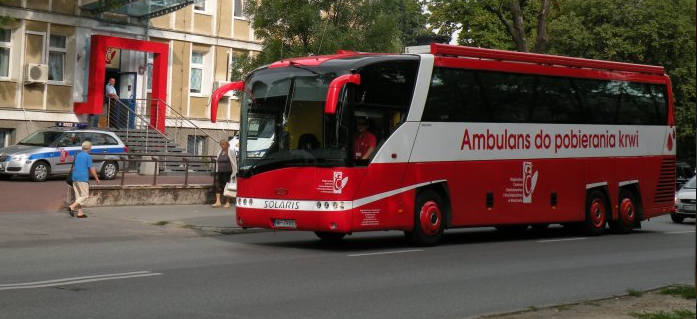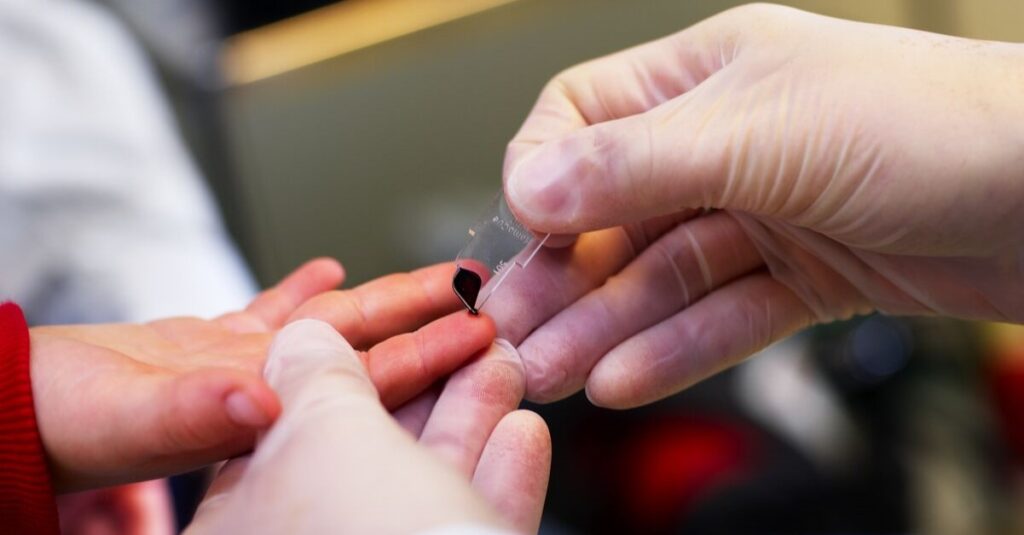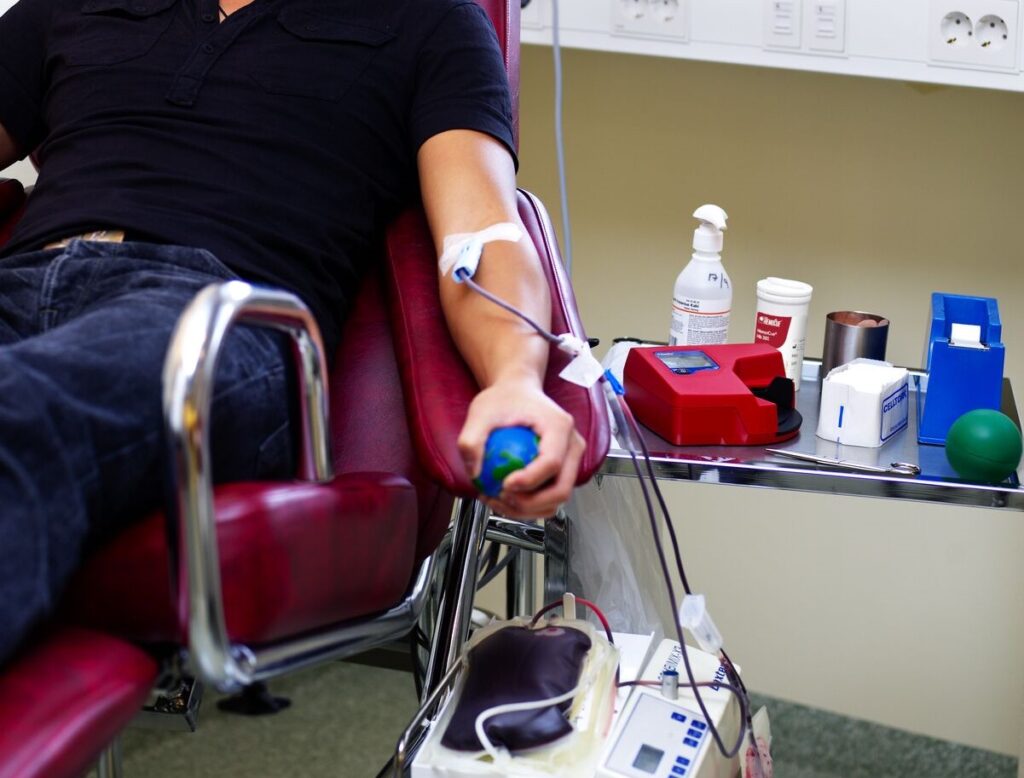The Regional Blood Donation and Hemotherapy Center in Warsaw (Warsaw Blood Bank) is one of the largest blood banks in Poland. Located in the capital of the country, in the Masovian Voivodeship province, the Warsaw Blood Bank supplies blood components such as red blood cell concentrate, freshly frozen plasma and platelet blood cell concentrate to over 100 hospitals with specialist departments including hematology, transplantology, and oncology.
Warsaw Blood Bank
What are the benefits for Warsaw Blood Bank with using HemoCue® WBC System?
The Warsaw Blood Bank was the first blood bank in Poland to implement the HemoCue® WBC System in blood donation. Currently, they use 15 WBC analyzers during mobile blood donation drives and in field departments. Ms Danuta Prusak, Laboratory Diagnostician and Head of the Quality Control Laboratory, says that other HemoCue® Hb Systems have been used in the Warsaw Blood Bank for many years. Therefore, the users were familiar with the measuring procedure and the implementation of another HemoCue analyzer, which is easy and intuitive to use, was uncomplicated.
The advantages of using these devices are primarily the time of leukocyte determination (about 3 minutes) in donors during blood donation drives and the small size of the device, facilitating easy transport.
Danuta Prusak
Laboratory Diagnostician & Head of QC Laboratory
“Using HemoCue® WBC analyzers allow our regional blood bank to reduce blood collection from donors with abnormal leukocyte levels. This translates into decreased costs for unnecessary blood donations and reduces the amount of blood destroyed after field drives and at off-site departments that do not have hematology analyzers.”
What are the clinical implications of using the HemoCue® WBC System?
“Using HemoCue® WBC Analyzers allow our regional blood bank to reduce blood collection from donors with abnormal leukocyte levels. This translates into decreased costs for unnecessary blood donations and reduces the amount of blood destroyed after field drives and at off-site departments that do not have hematology analyzers. Most importantly, it allows us to monitor the health of blood donors and pay attention to increased levels of leukocytes, which may be the cause of the beginning stages of infection. This aspect is very relevant for us. It also guarantees safe blood components for patients who require transfusions”, says Ms Prusak.
“We have adopted a guideline in our blood donation center that the determination of leukocyte levels with HemoCue® WBC Analyzers is performed on first-time donors and on multiple donors whose leukocyte levels were abnormal in the previous donation”, continues Ms Prusak.
How is the HemoCue® WBC System used?
“We use these analyzers during field campaigns carried out in the Mazowieckie Voivodeship province and in off-site departments that do not have hematology analyzers”, says Ms Prusak.
Information about the HemoCue® WBC System
HemoCue® WBC System brings the unique benefit of determining total white blood cell counts right at the point of care. In just three minutes, results with the same precision and accuracy as those from a central laboratory are provided.
Fitting seamlessly into a variety of clinical applications and even in remote field clinics, the benefits are clear. Immediate WBC counts can mean the difference between waiting and taking action at the point of care – helping to move from assessment to treatment within minutes rather than hours or days.
Answer right when you need them
• Lab-accurate results in minutes
• Faster treatment decisions and streamlined workflow
• Easy to use by healthcare professionals and laboratory personnel
• Capillary or venous samples
• Factory calibration with no further calibration needed
• Unique software for internal QC
• Blood-based liquid controls available







